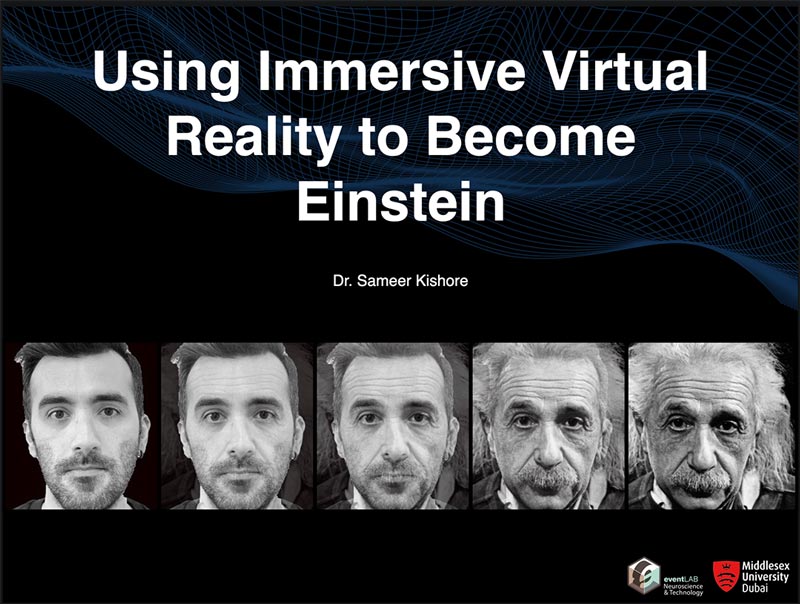Research presented at the Middlesex University Wednesday Research Seminar Series about the recently published study.
Abstract:
Several studies over the past few decades have shown that people tend to react to situations in Virtual Reality (VR) as they would if that event were happening in real life. Concepts such as Presence, Place Illusion and Plausibility Illusion refer to the feeling of ‘being there’ in the virtual environment and believing that the events taking place in VR are really happening. Taking advantage of this phenomenon, experiences have been developed in VR for several applications: Treatment of phobias (fear of spiders, fear of public speaking, etc.), social psychology studies (bystander effect, racial bias, etc.) and even medical treatments, such as stroke rehabilitation. In this talk, after a brief overview of the technology and various interesting applications, I will talk about a recent study that we published, where we developed an application that was used to treat people with a fear of heights (acrophobia). The results were very positive in terms of improving the level of fear of the participants and were published in The Lancet. In addition, I will also talk about how owning a virtual body in VR tends to influence higher-level behaviour and implicit biases. I will provide certain examples from past research, and then talk about a study we carried out where we ‘embodied’ university students in the body of Albert Einstein in order to see if that would improve their cognition. We observed that ‘becoming’ Einstein improved their performance in a cognitive task and reduced their implicit bias against older people.
